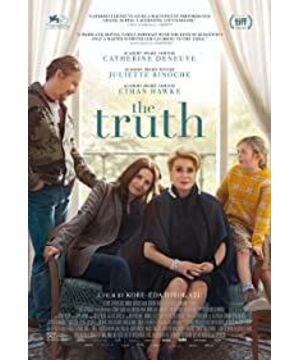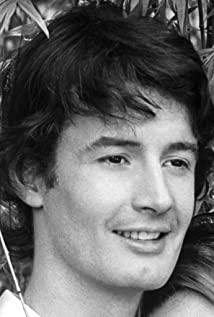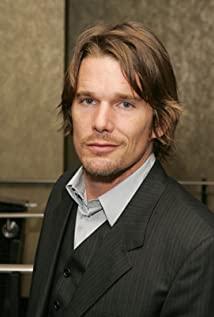I like Hirokazu Koeda very much.
The director loves families and believes that every family has its own secrets. To borrow a quote from Tolstoy here, every unhappy family is unhappy in its own way. But I don't talk about misfortune, because as soon as misfortune is spoken, it breaks the topic and exposes the ramifications, leading people to absolute pessimism. Here we say "hidden", and making a fuss about these hidden things has a lot to do with it. Previously, the director made "The Third Suspect", and he also had a family, but what he discussed more was the "hidden" of human nature and society, a broad metaphor, hidden in the world.
Watch this movie again. Begins with the publication of a memoir by mother Fabienne. You see, the memoirs of a famous female star must be concealed, and every sentence cannot be the truth. And these hidden places are precisely the places where rifts appear in the family. About her friend Sarah, about her daughter, about her husband, and about the manager who has been helping her, a conflict is brewing everywhere. It's these things that drive the movie forward. At the end of the film, the real reconciliation of the family is to be revealed.
So what is the truth? The surface truth is a movie in the making. The heroine in the movie is very similar to Sarah, a friend of her mother when she was young, who is also an actress. What is the truth in the movie made of? It was a mother suffering from an incurable disease. She went into space to extend the time she spent with her daughter. The time in space is different from the time on Earth. At the end of the film, Fabienne plays the daughter who is 73 years old, while the mother is still young. During this period, the mother and daughter only met when the daughter was 17 years old and 38 years old. She does accompany her daughter to grow old, but to accompany her to grow old does not mean to accompany her to grow up. True companionship has nothing to do with length of time.
In reality, what is the truth about Fabienne's life? Estranged from daughter Lumir, best friend Sarah may have died of her own. The daughter thinks that her mother Fabienne is too strong, strong enough to be unfeeling and indifferent, just like the film said, a good actor, a bad mother and friend. Fabienne's tangled and contradictory character between being an actress and being part of a family, friendship, and relationships shape her relationships with family and friends. This is the secrecy of an actor family.
Forgive me, though, I still fast-forwarded this movie. I know it was Director Hirokazu who did a good job of metaphors. At that time, watching "The Third Suspect", almost every sentence of the dialogue between the two male protagonists is worth pondering. Using words and pictures to push the film forward, I like it very much. But there seem to be some inconsistencies in the film, especially where the line between Sarah, Fabienne and Lumir is not so clear. I've been waiting for this thread, everyone handles it individually, it's a little rushed to sew it together.
View more about The Truth reviews











